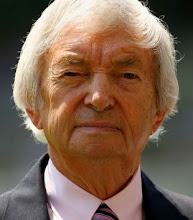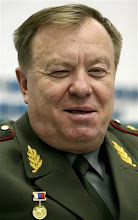Since the declaration of a cease fire in 2012, the kingdom of Alcovia has remained in a tenuous state of peace which has been called an "Civil Cold War" by many analysts and politicians alike. There has been no official declaration of peace and the nation is still divided between west and east with a recognized demilitarized zone splitting the nation to 2/1, west to east, ratio.

Eastern Alcovia is strictly held by the rebel factions and the many militias that have risen up to support them and while the official government recognizes this border for the sake of peace during the cease fire, there have been no official talks of any sort of recognized official partitioning of the nation. More over, the rebels under General Kusatya have expressed absolute conviction for the overthrow of the Alcovian crown, its nobility and the standing government. King Ullo has stated that he will fight rebellion in all its forms should the rebels resume their open hostilities.
In the northeastern region of Slavikova, open fighting between militias is common and there are concerns that rebel militia factions in the region are being supported by outside factions, possibly Russian. Russia has denied these allegations, countering with supposed evidence that CIA and former KGB agents have been attempting to destabilize the region, though they declined to provide any rationale for such an endeavor. What is true is that the region is a hotbed of activity where very little can be done, by national or rebel military forces alike, to curtail the fighting.

During the cease fire, UN activity has increased with several refugee camps having been established on both sides of the Borka river where the majority of the refugees are ethnic Iqenis who are being forced out of eastern Alcovia not by the official rebel forces but by hostile militias who are using the region's instability to act on generations of ethnic prejudice and resentment toward those ethnic Iqeni who are native to the region and those who settled in later decades. Offcial Alcovian government response to this "cleansing" has been in opposition of the acts but lack of control over the region has made it impossible to act on these oppositions without threatening the cease fire.
Outrage in neighboring Iqenistan and local Iqeni populations was recently fueled when earlier UN findings that refuted claims of executions and death squads were themselves refuted by the discovery of several mass burials of mostly ethnic Iquenis. To date an estimated 250 bodies have been discovered in such mass graves throughout eastern Alcovia. When asked for a statement, a spokesperson for the Alcovian Ministry of the Interior had the following to say -
"The Alcovian Peoples' Army has resisted all requests by official government authorities to investigate these killings. These crimes are being perpetrated by Alcovian citizens against its own citizens and are the responsibility of the legitimate authorities, to be investigated by those authorities and to bring to justice the perpetrators of these crimes under Alcovian royal justice. It is our position that, until the APA allows official investigation of these crimes, they will be considered complicit in those crimes."
There are those among the international community that see the region as a smoldering fuse that could flare up at any moment and explode the country into open warfare. Royal forces retain their vigilant stance along the demilitarized border between east and west while rebel forces struggle to maintain their own front, despite shortages of fuel, ammunition and a crumbling infrastructure.
In the end, it may be time that decides this conflict, but at this time there is still very much a crisis in Alcovia.
















